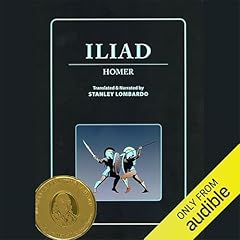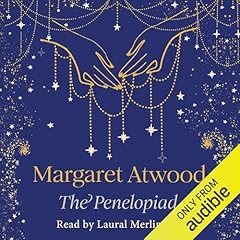
Myth
A Very Short Introduction
No se pudo agregar al carrito
Add to Cart failed.
Error al Agregar a Lista de Deseos.
Error al eliminar de la lista de deseos.
Error al añadir a tu biblioteca
Error al seguir el podcast
Error al dejar de seguir el podcast
 Exclusivo para miembros Prime: ¿Nuevo en Audible? Obtén 2 audiolibros gratis con tu prueba.
Exclusivo para miembros Prime: ¿Nuevo en Audible? Obtén 2 audiolibros gratis con tu prueba.Compra ahora por $14.66
-
Narrado por:
-
Ben Esner
-
De:
-
Robert A. Segal
Where do myths come from? What is their function, and what do they mean?
In this Very Short Introduction, Robert Segal introduces the array of approaches used to understand the study of myth. These approaches hail from disciplines as varied as anthropology, sociology, psychology, literary criticism, philosophy, science, and religious studies. Including ideas from theorists as varied as Sigmund Freud, Claude Levi-Strauss, Albert Camus, and Roland Barthes, Segal uses the famous ancient myth of Adonis to analyze their individual approaches and theories.
In this new edition, he not only considers the future study of myth, but also considers the interactions of myth theory with cognitive science, the implications of the myth of Gaia, and the differences between storytelling and myth.
©2015 Robert A. Segal (P)2021 TantorLos oyentes también disfrutaron:




















Las personas que vieron esto también vieron:


















I did find Segal's focus on using the Adonis myth to explain how different scholars studied myth to be a little bit confusing in areas. Perhaps different examples from different cultures could have worked better here. I did also find the final chapter on myth today to be a little bit reductive, but there are no diagrams the author refers to that you cannot see, which has been a problem with the Oxford Introduction series. One final criticism/warning ( which will not concern a US listener) I have concerns the American-centred nature of the discourse. The author unconsciously assumes that his audience is a white, male, middle class heterosexual from North America, and this did render the introduction a little bit limited in areas. It came out very strongly in the psychoanalysis section, which I skipped on my second listening.
Another title on Audible i would recommend is "Classical Mythology" by Elizabeth Vandiver. Although i am no fan of the Great Courses series because of the pseudo-lecture-hall style they create, she presents a very detailed analysis of classical mythology, uses the ideas of many of the scholars Segal discusses here, but she does so in a much more detailed and inclusive manner. I definitely would not recommend the "Myth in Human History Series".
But it is great that Audible growing its mythography and anthropology content. You can also now listen to the Sir James Frazer's The Golden Bough, and Mary Douglas's Purity and Danger as well.
Happy listening!
Good But Very North-American Centred
Se ha producido un error. Vuelve a intentarlo dentro de unos minutos.


